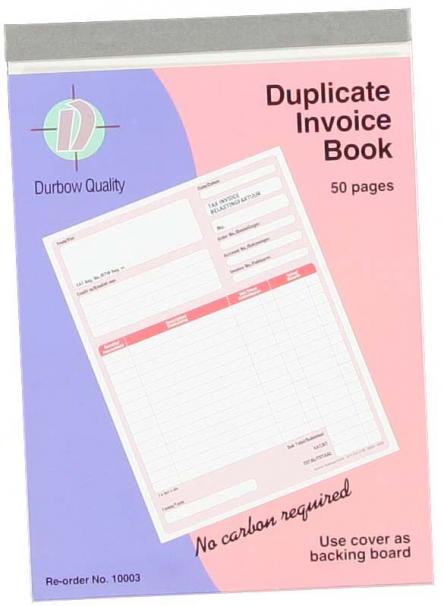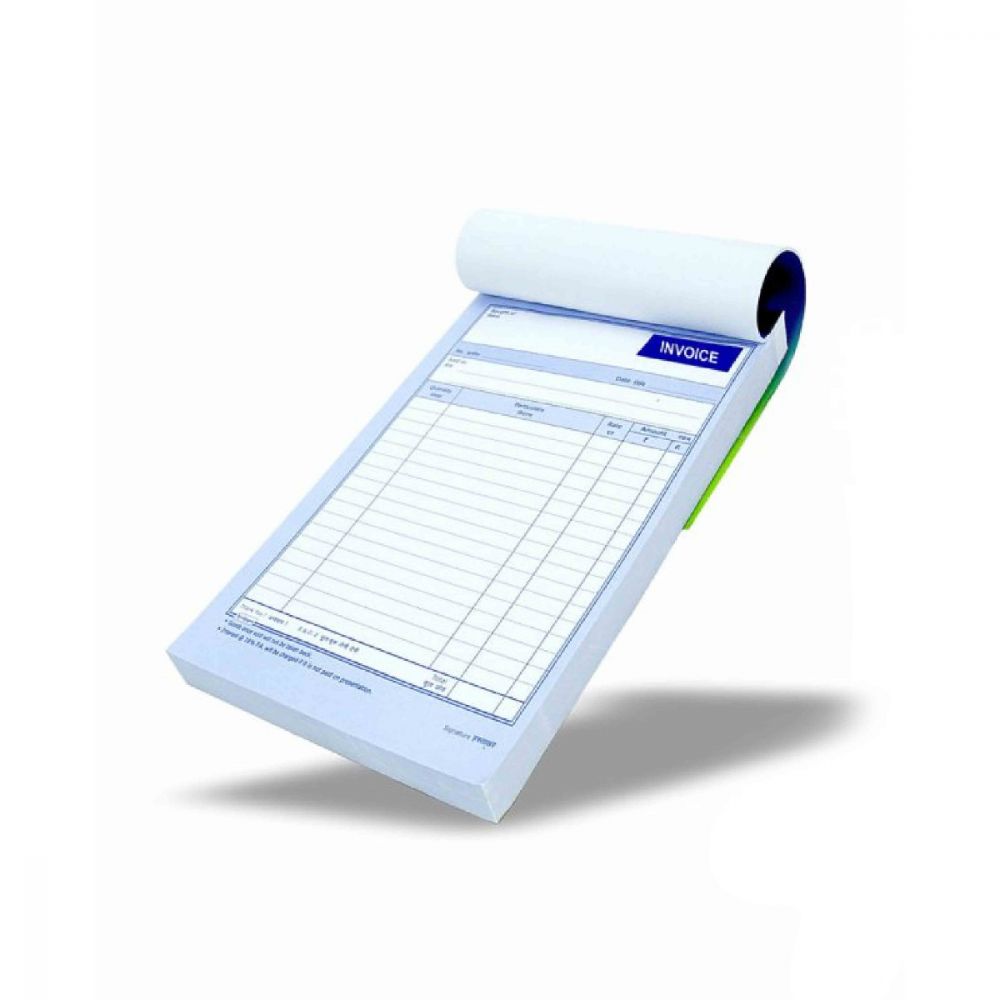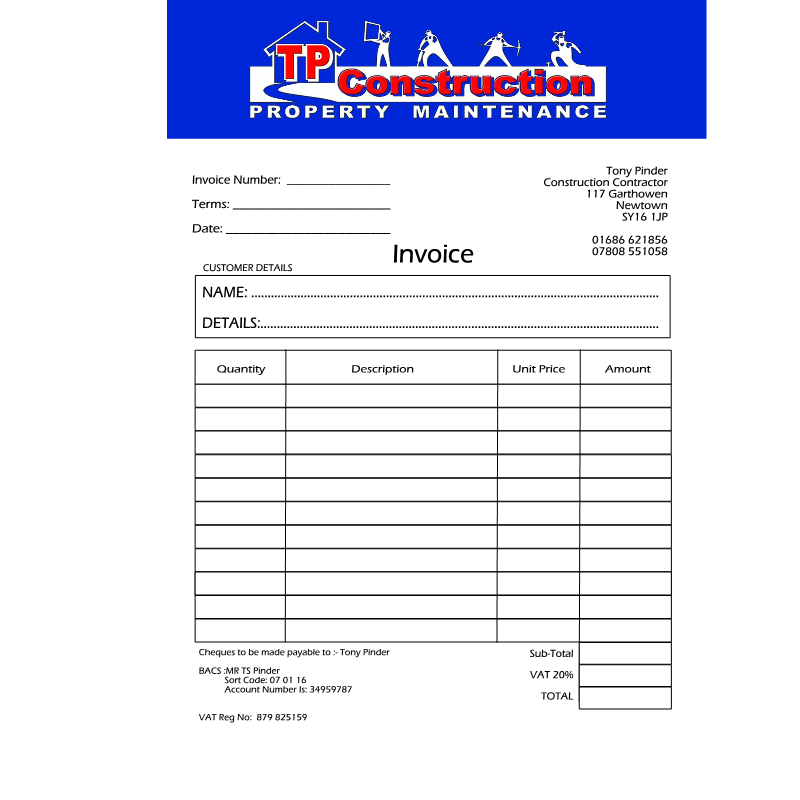The role of an invoice book in audit readiness
The role of an invoice book in audit readiness
Blog Article
Leading Tips for Efficiently Handling Financial Resources With an Invoice Book in Your Service
Efficient economic management is crucial for any kind of company, and an invoice book plays a considerable role in this procedure. It serves as an important tool for monitoring earnings and expenditures while making certain prompt settlements. Picking the appropriate invoice book and arranging billings efficiently are fundamental steps. Nonetheless, there are extra approaches to improve total performance. Recognizing these approaches can significantly influence a business's economic security and development possibility. What are the most reliable methods to contemplate?
Comprehending the Significance of an Invoice Book
An invoice book offers as a critical tool for services seeking to keep organized monetary records. It permits business to document transactions systematically, making sure that all sales and solutions provided are properly taped. This organized paperwork is important for tracking earnings, keeping an eye on money flow, and handling expenses.Moreover, a billing publication help in keeping professionalism and reliability in business transactions. Giving clients with thorough invoices boosts credibility and trust fund, promoting stronger client partnerships. Additionally, it streamlines the process of declaring taxes, as all needed financial details is conveniently offered and arranged.
Selecting the Right invoice book for Your Service
Selecting the appropriate invoice book is necessary for organizations looking to simplify their monetary monitoring. The choice frequently pivots on numerous essential aspects, including the nature of the organization, the volume of deals, and particular invoicing demands. For circumstances, small companies with less deals may profit from a simple, pre-printed billing book, while larger business might need tailored choices that permit for thorough itemization and branding.Additionally, businesses need to consider whether they like a physical or digital format. Digital billing books can supply enhanced features like automated computations and easy data storage, while physical books supply a tangible record. It is likewise crucial to examine the book's layout for clearness and ease of use. Ultimately, the ideal billing book will certainly not just assist in reliable invoicing but additionally add to far better capital administration and enhanced client relations.
Organizing Your Invoice for Easy Accessibility
Organizing billings efficiently is crucial for any business, as it guarantees quick access to essential monetary records when needed. An organized strategy can boost effectiveness and reduce stress and anxiety during audits or financial evaluations. It is a good idea to categorize invoices by kind, client, or date, permitting simple access. Using color-coded folders or identified areas within an invoice book can facilitate this process, making certain that documents are quickly recognizable at a glance.Moreover, keeping an electronic back-up of physical billings can provide an added layer of safety and security and availability. Regularly examining and purging outdated invoices will aid maintain the system convenient, avoiding mess. Establishing a routine for arranging and saving billings, whether daily or once a week, can greatly enhance economic operations. By prioritizing company, services can save time, minimize errors, and support far better monetary decision-making, inevitably resulting in boosted total monitoring of finances.
Keeping An Eye On Repayments and Due Dates
Keeping an eye on settlements and due dates is vital for maintaining monetary security. Organizing settlement schedules can aid individuals manage their money flow properly while minimizing late charges. Additionally, setting suggestion notifies assurances that no settlement due dates are ignored.
Arrange Repayment Schedules
Establishing a clear repayment routine is crucial for preserving economic stability and guaranteeing prompt capital. Organizations can gain from arranging payment routines by categorizing billings according to their due days. This method enables very easy recognition of upcoming repayments, allowing proactive management of money sources. By segmenting invoices into once a week or month-to-month timelines, companies can concentrate on critical settlements while also evaluating patterns in money inflow. In addition, an organized schedule help in projecting future monetary requirements, which is substantial for budgeting purposes. Constantly evaluating and upgrading settlement routines guarantees that no due dates are missed, fostering strong relationships with customers and suppliers. Inevitably, an efficient settlement schedule enhances overall monetary monitoring and sustains an organization's development objectives.
Set Pointer Notifies
Exactly how can businesses ensure they never miss out on a settlement deadline? One efficient strategy includes establishing reminder signals. By implementing automated suggestions, services can ensure timely notices for upcoming repayments and due days. invoice book. This can be achieved via different techniques, such as calendar applications, invoicing software application, or devoted reminder apps.These signals can be configured to alert users days or perhaps weeks beforehand, enabling appropriate time for preparation. Furthermore, organizations should take into consideration categorizing reminders based on concern, guaranteeing that critical payments receive unique interest. By constantly utilizing reminder alerts, organizations can enhance their capital administration and maintain positive partnerships with clients and suppliers. Eventually, this aggressive approach reduces the threat of late fees and cultivates economic security

Implementing Constant Billing Practices
Although lots of services recognize the value of prompt payments, applying regular invoicing methods commonly proves difficult. Establishing a standardized invoicing procedure can markedly boost money flow administration. This consists of setup details periods for releasing billings, whether regular, bi-weekly, or monthly, depending upon the nature of the organization and customer relationships.Furthermore, businesses should ensure that invoices are clear and comprehensive, outlining services made, settlement terms, and Full Report due days. Using a systematic method to act on exceptional invoices is similarly important; tips can be automated to maintain professionalism and consistency.Additionally, educating personnel on the invoicing procedure can cultivate liability and accuracy, reducing mistakes that may postpone settlements. Regularly examining and readjusting invoicing techniques can assist companies stay lined up with sector requirements and consumer assumptions, ultimately advertising a much healthier financial setting. Uniformity in these methods not only improves performance yet additionally constructs count on with customers.
Using Invoice Templates for Effectiveness
Using invoice layouts can substantially improve the performance of the invoice creation procedure. By streamlining this job, organizations can save time and minimize mistakes, allowing for quicker repayment cycles. In addition, tailoring templates for branding purposes guarantees that billings reflect the company's identity, enhancing professionalism in client communications.
Simplifying Invoice Creation Process
Improving the invoice development process can greatly boost a service's performance and precision. invoice book. By using pre-designed billing layouts, businesses can lessen time invested on drafting invoices from scrape. These design templates normally consist of important areas, such as customer details, detailed solutions, and settlement terms, ensuring that all essential details are recorded consistently.Furthermore, employing invoice software can automate computations and lower the likelihood of human error. This not just quickens the process yet likewise boosts record-keeping by maintaining an electronic archive of all invoices issued. Additionally, standardized templates can facilitate quicker testimonials and approvals within business, enabling timely payment and improving capital. Overall, an efficient invoice creation procedure is vital for keeping financial health in an open market
Personalizing Design Templates for Branding
Tailoring billing design templates for branding can substantially improve an organization's specialist picture while making certain efficiency in the invoicing process. By including firm logos, color design, and typography that show the brand identity, companies create a natural appearance that cultivates trust fund and recognition among clients. Tailored design templates can additionally enhance data entry by incorporating pre-filled fields for customer information and services provided, minimizing errors and saving time. Additionally, consisting of personalized messages or terms of solution can reinforce client connections. Services should frequently evaluate and update their invoice develops to straighten with any kind of branding modifications, making sure that their invoicing process remains an extension of their brand name. This calculated strategy not just improves effectiveness however also enhances the brand name's existence in the industry.
Regularly Reviewing Your Financial Wellness

Often Asked Concerns
How Typically Should I Update My invoice book?
The frequency of updating an invoice publication differs by business demands. Normally, it is a good idea to upgrade it on a regular basis, ideally after each purchase, to maintain exact records and promote efficient monetary administration.
Can I Use Digital Invoices Rather of a Physical Publication?
The question of making use of digital invoices as opposed to a physical book indicates a shift towards modern monetary monitoring - invoice book. Digital billings provide ease and ease of access, permitting services to enhance procedures, lower paper waste, and boost record-keeping effectiveness
What Should I Do if an Invoice Is Lost?
If a billing is lost, the person needs to without delay notify the customer, edition a replicate invoice, and record the circumstance for record-keeping. Preserving a clear communication path can protect against prospective misunderstandings or disputes.

Exactly how Do I Take Care Of Late Repayments Efficiently?
Taking care of late payments efficiently includes sending courteous suggestions, establishing clear payment terms in advance, and maintaining open communication with customers. Applying an organized follow-up process can greatly reduce hold-ups and boost capital for business.
Is It Required to Maintain Copies of Expired Invoices?
The requirement of maintaining duplicates of expired invoices differs by sector and legal demands. Some services retain them for reference, audits, or tax objectives, while others may discard them, relying on their functional needs and policies.
Report this page